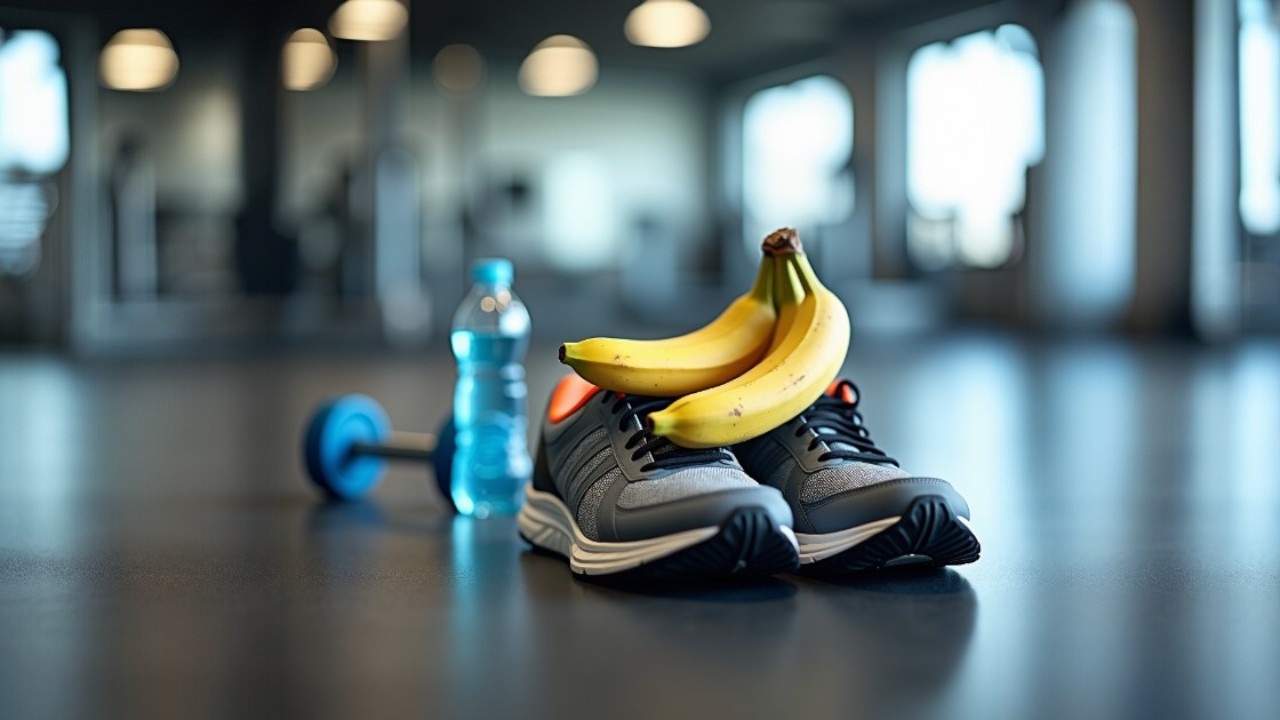Introduction
Morning workouts can be a great way to kickstart your day, boost your metabolism, and improve your overall fitness. However, there is ongoing debate about whether you should eat before exercising in the morning. Some argue that exercising on an empty stomach can enhance fat burning, while others believe that eating beforehand provides necessary fuel for optimal performance. In this comprehensive guide, we will explore the pros and cons of eating before morning workouts, backed by scientific research, and help you determine the best approach for your fitness goals.
The Science Behind Fasted Workouts
Understanding Fasted Workouts
Fasted workouts refer to exercising on an empty stomach, typically after an overnight fast. This means not consuming any calories before your morning exercise session.
Benefits of Fasted Workouts
- Increased Fat Oxidation: Research suggests that fasted workouts can increase fat oxidation, as the body uses stored fat for energy in the absence of readily available glucose.
- Improved Insulin Sensitivity: Exercising in a fasted state may improve insulin sensitivity, which can help regulate blood sugar levels and reduce the risk of type 2 diabetes.
- Hormonal Benefits: Fasted workouts can increase the production of growth hormone and norepinephrine, which may aid in fat loss and muscle preservation.
Potential Drawbacks
- Reduced Performance: Without readily available energy from food, your performance may suffer, leading to decreased strength and endurance.
- Muscle Breakdown: Prolonged fasted workouts can lead to muscle protein breakdown, as the body may use amino acids for energy.
- Increased Stress: Exercising on an empty stomach can elevate cortisol levels, potentially leading to increased stress and negative impacts on overall health.
The Benefits of Eating Before Morning Workouts
Fueling Your Body
Eating before a workout provides your body with the necessary fuel to perform at its best. Carbohydrates, in particular, provide a quick source of energy.
Enhanced Performance
Consuming a pre-workout meal or snack can improve your performance by increasing stamina, strength, and overall exercise capacity.
Preserving Muscle Mass
Eating before exercise can help prevent muscle protein breakdown, promoting muscle growth and recovery.
Improved Recovery
Pre-workout nutrition can enhance recovery by providing essential nutrients that support muscle repair and glycogen replenishment.
What to Eat Before a Morning Workout
Carbohydrates
Carbohydrates are the body’s preferred source of energy during exercise. Consuming a carbohydrate-rich snack or meal before your workout can provide the necessary fuel for optimal performance.
Protein
Protein helps preserve muscle mass and supports recovery. Including a moderate amount of protein in your pre-workout meal can be beneficial.
Healthy Fats
While fats are not the primary energy source during exercise, healthy fats can provide sustained energy and support overall health.
Hydration
Staying hydrated is crucial for optimal performance. Drink water before your workout to ensure proper hydration levels.
Examples of Pre-Workout Snacks
- Banana with Peanut Butter: Provides carbohydrates, protein, and healthy fats.
- Greek Yogurt with Berries: Offers protein and carbohydrates.
- Oatmeal with Honey and Nuts: Rich in carbohydrates, protein, and healthy fats.
- Whole Grain Toast with Avocado: Combines carbohydrates and healthy fats.
Timing Your Pre-Workout Meal
Small Snacks
If you prefer a small snack, eat it 30-60 minutes before your workout. This allows enough time for digestion and absorption.
Larger Meals
For larger meals, aim to eat 2-3 hours before exercising. This provides ample time for digestion and ensures you have enough energy for your workout.
Individual Variability and Preferences
Listening to Your Body
Everyone’s body responds differently to pre-workout nutrition. Pay attention to how you feel during and after your workouts to determine what works best for you.
Trial and Error
Experiment with different types of foods, portion sizes, and timing to find the optimal pre-workout nutrition strategy that suits your needs and preferences.
The Role of Intermittent Fasting
What is Intermittent Fasting?
Intermittent fasting involves alternating periods of eating and fasting. Many people practice intermittent fasting by skipping breakfast and working out in a fasted state.
Benefits of Intermittent Fasting
- Weight Loss: Intermittent fasting can promote weight loss by reducing calorie intake and increasing fat burning.
- Improved Metabolic Health: Fasting periods can improve insulin sensitivity and overall metabolic health.
- Enhanced Focus: Some people report increased mental clarity and focus during fasting periods.
Considerations for Athletes
While intermittent fasting can offer health benefits, it may not be suitable for everyone, especially those with high energy demands. Athletes should consider their performance goals and nutritional needs before adopting an intermittent fasting regimen.
Fasted vs. Fed Workouts: The Research
Comparing the Effects
Numerous studies have compared the effects of fasted and fed workouts on performance, fat loss, and muscle preservation.
Performance
Research indicates that exercising in a fed state generally improves performance, particularly for high-intensity and endurance activities.
Fat Loss
While fasted workouts may increase fat oxidation, overall fat loss depends on the balance between calorie intake and expenditure. Both fasted and fed workouts can contribute to fat loss when combined with a healthy diet.
Muscle Preservation
Fed workouts are more effective at preserving muscle mass, as they provide the necessary nutrients to support muscle growth and repair.
Practical Tips for Morning Workouts
Plan Ahead
Prepare your pre-workout meal or snack the night before to save time in the morning.
Keep It Simple
Choose simple, easily digestible foods that won’t cause digestive discomfort during your workout.
Stay Consistent
Consistency is key. Stick to a routine that works for you and supports your fitness goals.
Listen to Your Body
Pay attention to your body’s signals. If you feel weak or fatigued during fasted workouts, consider eating a small snack before exercising.
Common Myths About Eating Before Morning Workouts
Myth: Eating Before Workouts Always Causes Stomach Issues
While some people may experience digestive discomfort, choosing easily digestible foods and allowing enough time for digestion can prevent this issue.
Myth: Fasted Workouts Are Always Better for Fat Loss
Fasted workouts can increase fat oxidation, but overall fat loss depends on calorie balance. Both fasted and fed workouts can be effective for fat loss.
Myth: You Should Never Exercise on an Empty Stomach
Exercising on an empty stomach can be beneficial for some people, but it may not be suitable for everyone. Listen to your body and adjust accordingly.
Conclusion
Deciding whether to eat before morning workouts depends on your individual goals, preferences, and how your body responds to different nutrition strategies. Both fasted and fed workouts have their benefits and potential drawbacks. By experimenting with various approaches and paying attention to your body’s signals, you can determine the best pre-workout nutrition plan for you. Remember, consistency and listening to your body are key to achieving your fitness goals.
FAQs
Is it better to eat or exercise on an empty stomach?
Both options have benefits. Eating provides energy and supports performance, while exercising on an empty stomach can enhance fat burning. Choose based on your goals and how your body responds.
What are the best foods to eat before a morning workout?
Good options include bananas with peanut butter, Greek yogurt with berries, oatmeal with honey and nuts, and whole grain toast with avocado.
How long before a workout should I eat?
For small snacks, eat 30-60 minutes before exercising. For larger meals, allow 2-3 hours for digestion.
Can I drink coffee before a morning workout?
Yes, drinking coffee before a workout can enhance performance and increase alertness. Just be mindful of how caffeine affects your stomach.
Will exercising on an empty stomach cause muscle loss?
Prolonged fasted workouts can lead to muscle protein breakdown. Consuming a pre-workout snack with protein can help preserve muscle mass.
Is intermittent fasting suitable for athletes?
Intermittent fasting can offer benefits, but it may not suit everyone, especially athletes with high energy demands. Consider your performance goals and nutritional needs.
How do I know if fasted workouts are right for me?
Pay attention to how you feel during and after fasted workouts. If you experience fatigue or reduced performance, consider eating a small snack before exercising.
Meta Description
Discover whether eating before morning workouts is the best choice. Learn about the benefits and drawbacks of fasted and fed workouts in our comprehensive guide.












